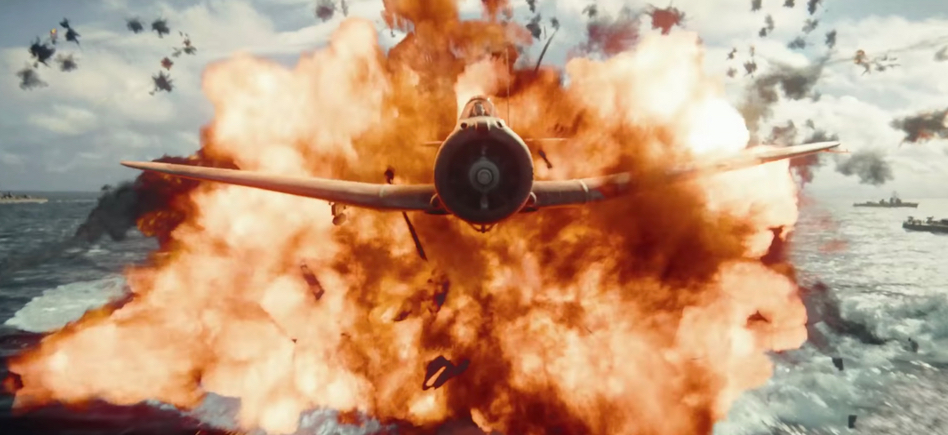(First appeared in Sunday November 17 editions of The Times and The News-Star.)
The late and great writer Kurt Vonnegut, a veteran of World War II and a different kind of dude, is credited with saying this about literary criticism:
“I have long felt that any reviewer who expresses rage and loathing for a novel or a play or a poem is preposterous. He or she is like a person who has put on full armor and attacked a hot fudge sundae or a banana split.”
As I heard a caller on sports talk radio once say, “I occur.”
It’s “art” and subjective and different strokes for different folks. The same goes for movies, and along those lines, I am glad I saw the new Midway movie but won’t see it again, even when it comes on free TV, if it ever does.
The best thing about Midway was the three or four times when my son would lean over and whisper something funny to me or I would do the same thing to him. We had 2 hours and 18 minutes of runtime to do that; had we been watching it on TV, we would have just talked out loud most of the time, as people in shows tend to do these days, thinking they are in their beds watching Netflix.
The second-best thing about it was that the trailer for 1917, another war movie having to do with the world war before Midway and World War II, looked pretty good. Its release is set for Christmas or early January.
Supposed to be a blockbuster.
Midway wasn’t expected to be a blockbuster and little doubt it won’t be, although it led at the box office when it opened the second weekend of November. It’s not going to bomb but it’s not going to have the appeal or longevity of my favorite Midway, released in 1976 and played at least a couple of times a year on cable. The reason I was looking so forward to the new Midway was that I was tired of seeing Charlton Heston die while trying to land his shot-up dive bomber on the U.S.S. Enterprise every Memorial Day or Veterans Day weekend for the past 30 years or so.
But I’ll watch the old one before I watch the new one again.
Just wanted it to be better; I let me expectations get me in trouble sometimes.
The true story is set six months after the Pearl Harbor disaster. America has some brilliant and bizarre people working in a basement in Hawaii cracking the Japanese code. We get solid intelligence, trust it, and surprise the Japanese fleet at the Allies’ air base at Midway, an atoll about a third of the way between Honolulu and Tokyo, to win a pivotal battle early in the war.
American pilots sank four Japanese aircraft carriers and lost only one; I think we had only four in the entire U.S. Navy at that point. Had the Japanese fleet sank our aircraft carriers and won, plus had they taken Midway, they would have had a base close enough to the West Coast to attack Los Angeles and San Francisco and San Diego. From the books I’ve read, in the span of about six or seven minutes when American pilots dropped a couple of bombs onto the decks of three Japanese carriers, we as Americans went from maybe speaking Japanese in the mid-1940s to having the upper hand in the Pacific.
Sort of a big deal, worthy of a moment of silence here in the wake of Veterans Day.
The 1976 movies starred guys like Heston and Henry Fonda, Glenn Ford and Robert Mitchum and Hal Holbrook and Robert Wagner. This one has Woody Harrelson as Admiral Chester Nimitz and Dennis Quaid as Bull Halsey and Patrick Wilson as intelligence chief Edwin Layton. They were all solid, and my respect for Harrelson grows because the jump from Woody the bartender on Cheers to commander of the Pacific Fleet is quite a haul. He’s good.
The best part of the movie is the intelligence story within the big story. The battle scenes are good but I supposed I wanted them to be better since Hollywood has had 40-plus years to work on effects since the 1976 Midway. And again, at 2:18, it’s a haul.
The best way to say it is that the good parts are really good and the bad parts — some of the corny dialogue and the creepy accents from a few of the supporting case — are uncomfortably bad.
But I’m still glad we saw it. And glad they went to the trouble to make it. And happy we only had to pay matinee price for it.
So no complaints. Besides, we might have lost the movie but we won this battle, and we won the war.
